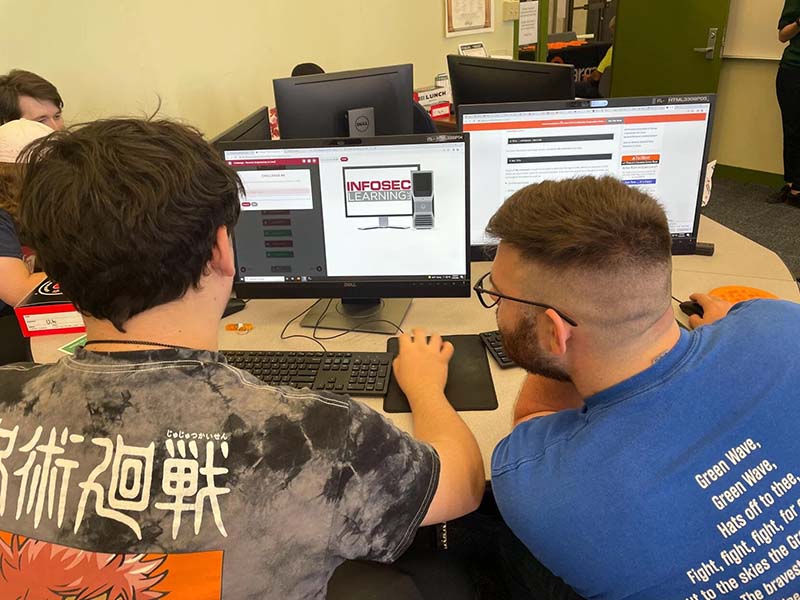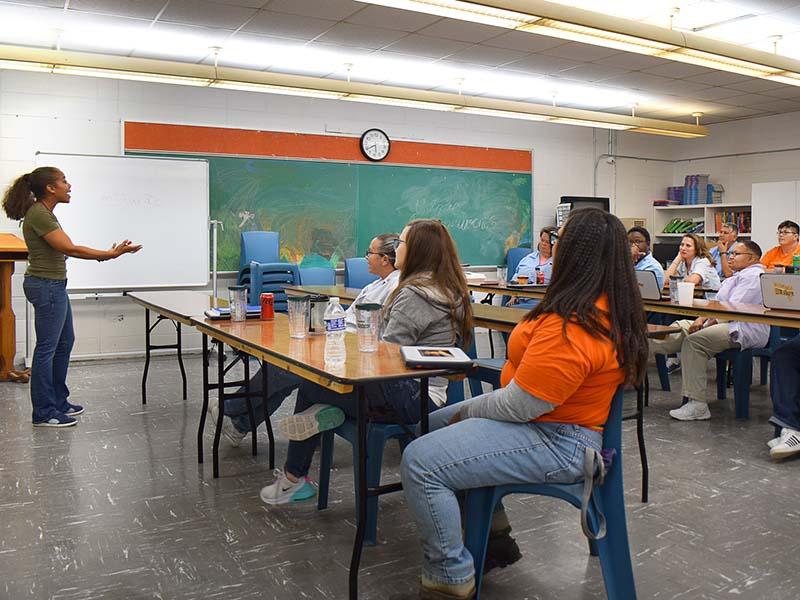Businesses can reduce cyber threats and protect customers with help from Tulane SoPA

The Tulane School of Professional Advancement (Tulane SoPA) is committed to helping companies improve their cybersecurity by raising awareness, conducting free assessments and educating working professionals.
The first step for a company to enhance its security is to undergo a cyber-risk assessment, said Ralph Russo, director of the Tulane SoPA Information Technology Program. Such assessments allow a company to evaluate its current security methods, determine the risk of a damaging event occurring, and examine the potential impacts of a security breach.
“If you own a business and don’t know where you are from a security standpoint, the first step is to understand your current situation and compare it to best practice,” Russo said. “The delta between those will tell you what you need to do to raise your security to an acceptable level.”
Russo said such assessments include both technical and non-technical components such as firewall placement and protections, which employees have administrative privileges and how much knowledge employees have about the threat of phishing or other cyberattacks. Conducting or updating an assessment now is especially important as more workers conduct business from home or other remote locations.
Many owners of small or mid-sized businesses often believe they are not desirable to cyberattackers, Russo said. But in fact, such companies now face similar cyber risk as larger corporations in terms of impact.
“The number of bad actors is growing because anyone can download attack tools. You don’t have to have significant technical knowledge anymore to hack and steal from a business,” Russo said. “It can be somebody with malicious intent anywhere in the world. They can encrypt important information and ask for ransom to get them back. They can steal credit card and customer information from your files. Once they have access, the damage can be significant.”
Russo also noted that today’s customers are more aware of cyber threats and expect businesses to take measures to protect them, whether they are law offices, doctor’s offices, stores, restaurants, or any other business that works with information and data.
“The public has higher expectations now when it comes to a business doing its due diligence, and many people are willing to cancel you quickly if they feel you aren’t taking sufficient security measures,” Russo said. “If there is a breach, a company can be out of business quickly, whether because of the amount of ransom money that’s requested or the public shying away from you. Your competitors gain an advantage if customers won’t come to you because they don’t consider your business to be secure.”
In the Tulane SoPA Information Technology (IT) Program, both undergraduate and graduate students must complete a capstone course before earning their degree. Russo said that in most of these courses, students work alongside their instructors to help a company solve a real-world technical problem. Tulane SoPA students who have a concentration in cybersecurity often participate in cyber-risk assessments, which are provided by Tulane SoPA at no cost to the business.
“The student first goes through all of this learning about cyber law and policy, technical education, data security, governance, and more. Once they complete that, we want them to use that learning to solve a complex problem,” Russo said. “When they conduct a cyber-risk assessment, they look at all facets of a company’s governance, systems and access. All of that data and their reports live in Tulane’s secure systems, so the information is not released elsewhere.”
The final cyber-risk report can be over 100 pages, including graphics, diagrams and recommendations for improvement. Tulane SoPA students and faculty also are available to advise business owners on the best next steps for implementing any recommended changes.
Companies interested in working with Tulane SoPA on a cyber-risk assessment or other project can sign up online at https://sopa.tulane.edu/itcapstone.
In addition, Russo said Tulane SoPA’s IT program offers free technology boot camps each semester for the general public as a community service. The next boot camp is scheduled for August 29 and will address “cybersecurity breaches through real-life case studies.” During the class, participants will examine real-life breaches and take away lessons they can apply in their own professional lives. The boot camps can be used as standalone educational opportunities or applied for credit toward a Tulane degree.
“We really enjoy both educating our students and advancing the IT field,” Russo said. “Our instructors hold advanced degrees, are experts in their fields and are actively working in the IT domain. We also have a mentorship program for women in technology. We have several professional certifications that can be earned while someone is working toward an academic degree. We bring in experts to talk about professional development and emotional intelligence. We want to make sure our students are well-positioned for success.”
For information on Tulane SoPA’s IT and cybersecurity programs, visit https://sopa.tulane.edu/it.



